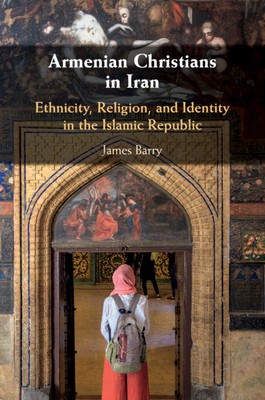
- We will send in 10–14 business days.
- Author: James Barry
- Publisher: Cambridge University Press
- ISBN-10: 1108450326
- ISBN-13: 9781108450324
- Format: 15.2 x 22.9 x 1.7 cm, minkšti viršeliai
- Language: English
- SAVE -10% with code: EXTRA
Reviews
Description
Since the 1979 revolution, Iran has promoted a Shi'a Islamic identity aimed at transcending ethnic and national boundaries. During the same period, Iran's Armenian community, once a prominent Christian minority in Tehran, has declined by more than eighty percent. Although the Armenian community is recognised by the constitution and granted specific privileges under Iranian law, they do not share equal rights with their Shi'i Muslim compatriots. Drawing upon interviews conducted with members of the Armenian community and using sources in both Persian and Armenian languages, this book questions whether the Islamic Republic has failed or succeeded in fostering a cohesive identity which enables non-Muslims to feel a sense of belonging in this Islamic Republic. As state identities are also often key in exacerbating ethnic conflict, this book probes into the potential cleavage points for future social conflict in Iran.
EXTRA 10 % discount with code: EXTRA
The promotion ends in 21d.22:44:30
The discount code is valid when purchasing from 10 €. Discounts do not stack.
- Author: James Barry
- Publisher: Cambridge University Press
- ISBN-10: 1108450326
- ISBN-13: 9781108450324
- Format: 15.2 x 22.9 x 1.7 cm, minkšti viršeliai
- Language: English English
Since the 1979 revolution, Iran has promoted a Shi'a Islamic identity aimed at transcending ethnic and national boundaries. During the same period, Iran's Armenian community, once a prominent Christian minority in Tehran, has declined by more than eighty percent. Although the Armenian community is recognised by the constitution and granted specific privileges under Iranian law, they do not share equal rights with their Shi'i Muslim compatriots. Drawing upon interviews conducted with members of the Armenian community and using sources in both Persian and Armenian languages, this book questions whether the Islamic Republic has failed or succeeded in fostering a cohesive identity which enables non-Muslims to feel a sense of belonging in this Islamic Republic. As state identities are also often key in exacerbating ethnic conflict, this book probes into the potential cleavage points for future social conflict in Iran.


Reviews